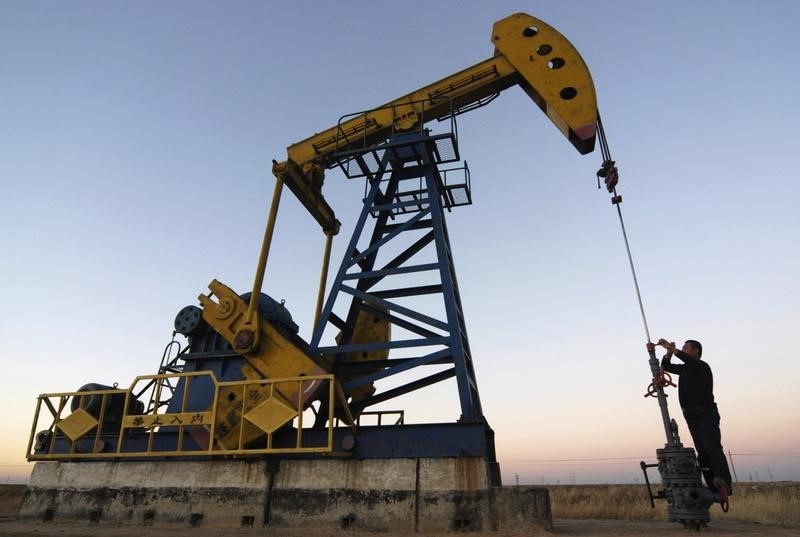TOKYO, Oct 25 (Reuters) - Oil prices stepped back on Friday
after three straight days of gains, hurt by renewed concerns
about fuel demand in light of gloomy economic growth forecasts.
Brent crude LCOc1 was down 30 cents, or 0.5%, at $61.37
by 0122 GMT. The global benchmark rose nearly 1% on Thursday and
is heading for a weekly gain of more than 3%.
West Texas Intermediate (WTI) crude CLc1 was down 26
cents, or 0.5%, at $55.97. The U.S. benchmark rose 0.5% in the
previous session and is on track for a weekly gain of 4.1%.
The strong weekly rise in oil prices was underpinned by a
surprise decline in U.S. inventories of crude and optimism about
more efforts to support prices by OPEC and its allies.
Yet, on the whole, economic growth and oil demand concerns
continue to be a key driver of prices.
Economists in a Reuters poll said a steeper decline in
global economic growth remains more likely than a synchronised
recovery, even as multiple central banks dole out rounds of
monetary easing. Another Reuters poll of economists found the recent truce in
the U.S.-China trade war is not an economic turning point and
has done nothing to reduce the risk that the United States could
slip into recession in the next two years. "The recent slowdown in U.S. data has resurrected talk of
U.S. growth 'catching down' to the rest of the world," said RBC
Capital Markets in a note to clients.
There was also more bad news for European powerhouse
Germany, with a survey showing employment in the nation's
private sector fell for the first time in six years in October,
suggesting that a third-quarter slowdown could stretch into the
closing months of the year. Thursday's oil price rally was driven by data showing U.S.
inventories dropped by 1.7 million barrels last week, shattering
analysts' expectations for an increase of 2.2 million barrels.
EIA/S
Adding further support to prices this week were comments by
officials of the Organization of the Petroleum Exporting
Countries (OPEC) that extended supply curbs are an option to
offset the weaker demand outlook for OPEC crude in 2020.
Saudi Arabia, OPEC's de facto leader, wants to focus first
on boosting adherence to the group's production-reduction pact
with Russia and other non-members, an alliance known as OPEC+,
before committing to more cuts, sources told Reuters.
